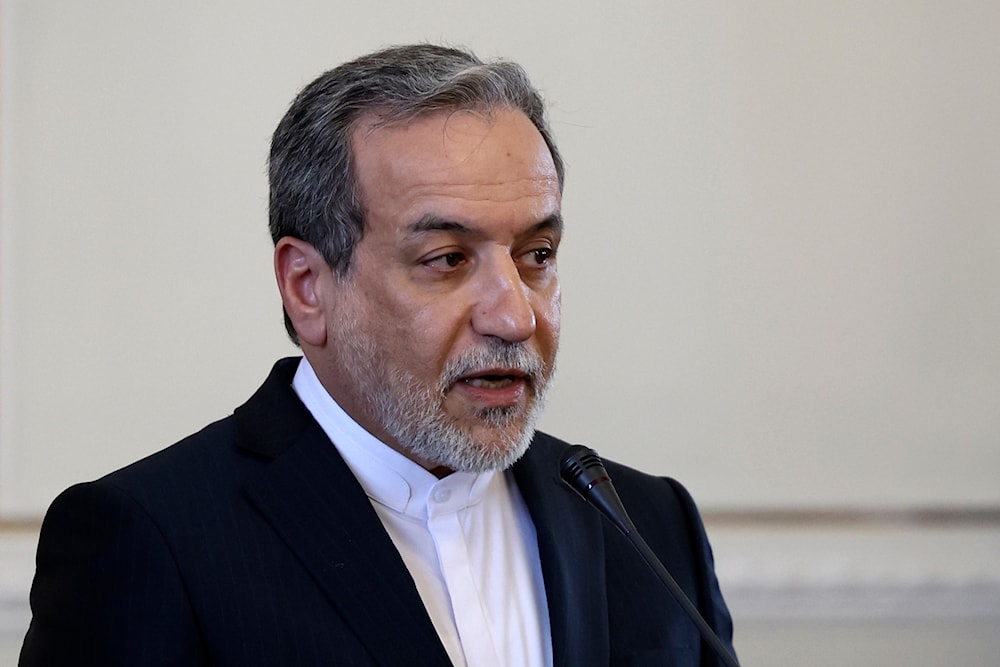Araghchi says Iran sent its response to Trump’s letter via Oman: IRNA
Iran has sent its response to Trump’s letter via Oman, FM Araghchi said, reiterating that Tehran will only engage in indirect talks under US "maximum pressure".
-

Iranian Foreign Minister Abbas Araghchi speaks in a joint press conference with his Russian counterpart Sergey Lavrov, in Tehran, Iran, on February 25, 2025. (AP Photo)
Iran has conveyed its response to a letter from US President Donald Trump through Oman, Iranian Foreign Minister Abbas Araghchi announced.
Speaking to IRNA on Thursday, Araghchi confirmed that Iran’s official reply had been delivered via the appropriate diplomatic channel.
“The official response comprises a letter wherein our viewpoints regarding the status quo and Mr. Trump’s letter have been fully laid out and relayed to the other side,” he indicated.
Trump had initially sent his letter to Iran on March 12 via the United Arab Emirates (UAE). While the content of the letter has not been officially disclosed, the US president has indicated that he proposed opening negotiations for a new nuclear agreement. Trump unilaterally withdrew the United States from a previous deal with Iran in 2018.
Araghchi reiterated on Thursday that Iran remains open to indirect negotiations but will not engage in direct talks while subjected to the US' "maximum pressure" policy and military threats.
“Indirect negotiations, though, can continue, as they existed in the past,” he added.
'More of a threat than an offer'
Last week, Araghchi said Trump's letter was "actually more of a threat" than an offer.
Trump's letter reportedly set a two-month deadline for Iran to agree to a new nuclear deal or face potential military action.
Speaking to Iranian state television, the Iranian Foreign Minister noted that while the letter appeared to present opportunities, its tone was ultimately threatening.
He emphasized that Iran’s refusal to engage in direct talks with the US is a tactical decision rather than a strategic stance.
He noted that ongoing discussions between Iran and the three European countries—France, Germany, and Britain—effectively serve as indirect negotiations with the United States.
“In circumstances where there is ‘maximum pressure,’ no one in their sound mind would enter into direct talks,” the top Iranian diplomat said at the time.
“The format of negotiations is always relevant in diplomatic relations… For now, our tactic and method is to have indirect negotiations.”
On February 4, Trump signed a presidential memorandum reinstating the "maximum pressure" policy on Iran, despite his claims of willingness to engage diplomatically with Tehran.
Meanwhile, the Leader of the Islamic Revolution and the Islamic Republic of Iran, Sayyed Ali Khamenei, has ruled out negotiations with the United States, asserting that Iran does not trust Washington to honor any commitments.
Read more: IAEA could hold talks with Iran amid Trump deadline: Report

 3 Min Read
3 Min Read








